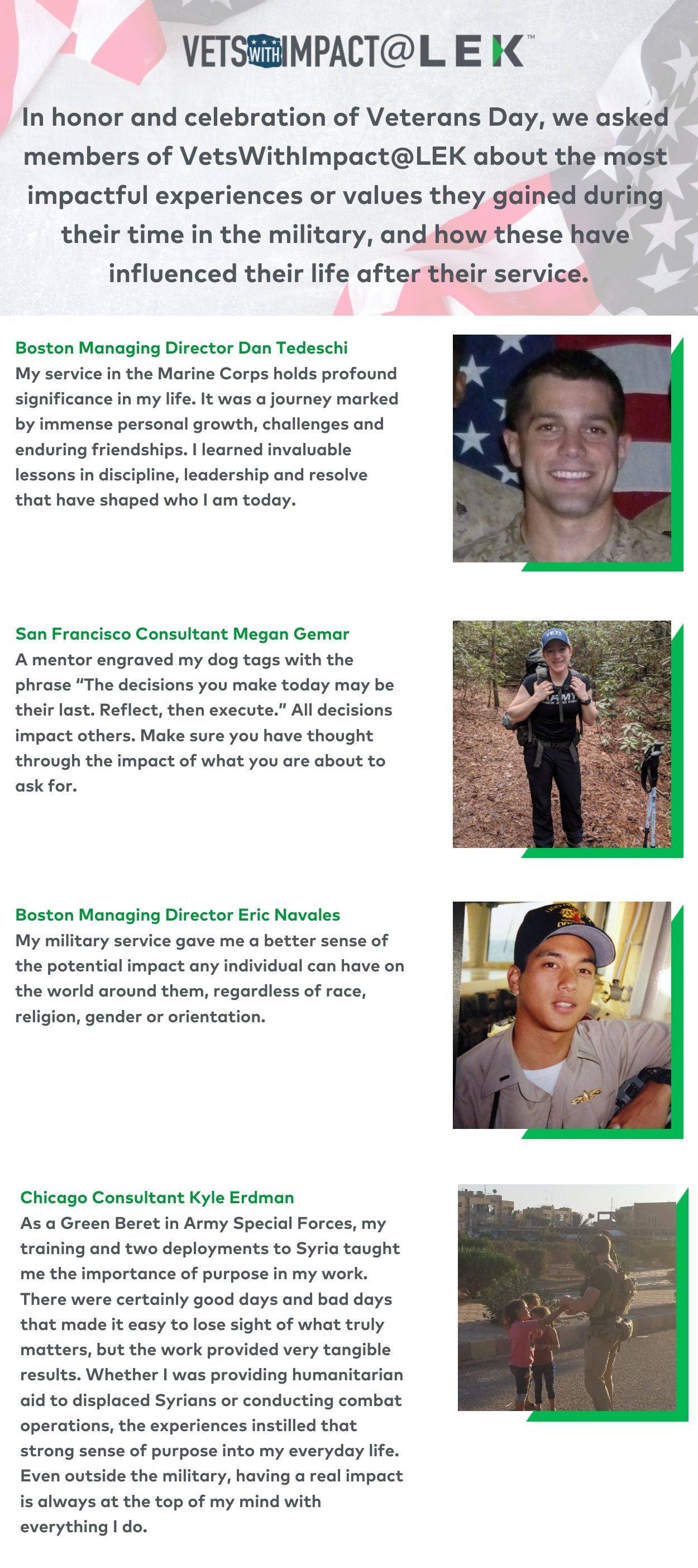Paris Manager Andrea Isak recently boomeranged back to L.E.K. Consulting. Here, she tells us about why she came back, her experience as an L.E.K. Manager, and her personal philosophies on leadership and success.
Could you briefly introduce yourself and share your background in the field of strategy consulting?
I'm a mother of two daughters, soon to be three and six years old. I went to EM Lyon Business School and joined L.E.K. Consulting as an intern in 2011 in the Paris office, straight after school. I stayed there for 7 years until the end of 2018, then launched my own business, KOOSH, with my husband. It's a monthly subscription service for organic, eco-friendly baby care products. I did that for 5 years with my husband and sold it 2 months ago to a diaper manufacturer. It was an amazing experience. And yes, now I'm back at L.E.K.
What made you come back to L.E.K.?
First of all, I never left L.E.K. because I disliked the job or anything like that. I really left because the conditions for launching my company were ideal at that time. I decided to come back because I love the strategic work we do, both Due Diligence and Corporate. It's very strategy-oriented, which I've always loved, and that stayed with me over the years. I mostly returned for the people; I know the partners very well, at least here in Paris, and they're very caring. The associates I've worked with have always been smart and friendly, which is really important to me. I also returned because there is an entrepreneurial nature to the partnership work that appealed to me.
What do you believe are the key qualities and skills essential for success in strategy consulting?
When you start, synthesis and analysis are crucial, being able to synthesize a lot of information, analyze it, and maintain rigor in what you do. It's important at the beginning, and as you advance to more senior roles, for example, a consultant position, you need to learn how to manage people, delegate work properly, and guide the team below you. When you become a Partner, commercial skills are necessary. It's very rich in terms of the skillset that is required, and it differs as you move up the ladder.
Can you give us an example of a particularly challenging project you've worked on and how your team approached it?
Yes, there was one that was challenging for me and probably had the most impact on any client that I've ever worked with. I worked for a listed company that is a global cable systems leader. Over the years, I became the point of contact for all their strategic work, and there was one project that lasted a few months and really transformed the company in various ways. We had to rethink their industrial footprint globally. There was a lot of financial analysis and evaluation of each plant's activities to help them optimize operations. Planning some of the plants, closing others, and opening new ones was part of the process. It was very interesting because it had a broad scope. What I particularly liked about the project was the high-level interactions with the executive committee on a weekly basis, which was quite insightful as we saw how a board thinks and interacts over time. It was amazing, and I also appreciated that we considered the social and cultural impact. In the end, we achieved substantial savings for the client and developed a great social mitigation plan for a business unit that had been underperforming for several years.
What do you consider to be your leadership philosophy? How do you inspire and motivate your team?
When working with my team, even though it's a junior one with many young members, I give them responsibilities. They each have their own work plan and are responsible for their section within that plan. I do this to develop ownership, so they can present their work to our partners during our weekly CTM (Case Team Meeting) and also to clients. This approach helps them think strategically and appreciate the value of their contributions.
And regarding my personal management style, I consider myself a facilitator for the team, always available to assist them with challenging issues. I prioritize optimizing our workflow to ensure timely delivery while maintaining a high standard of quality in our output. Cultivating a friendly and approachable culture is critical, especially in an environment like L.E.K., where managers often juggle multiple cases simultaneously. This can limit the time available for one-on-one interactions with junior team members, so it's important to me to foster a climate where they feel comfortable seeking guidance whenever needed. Everyone has a voice and should feel heard.
My leadership approach has remained consistent from my early days as a Manager 1 to now. Balancing my roles as a mother and a manager, I've had team members describe my style as 'motherly', which I take as a compliment. Interestingly, I was promoted to Manager during my maternity leave, and I believe that experience has also influenced my leadership philosophy!

